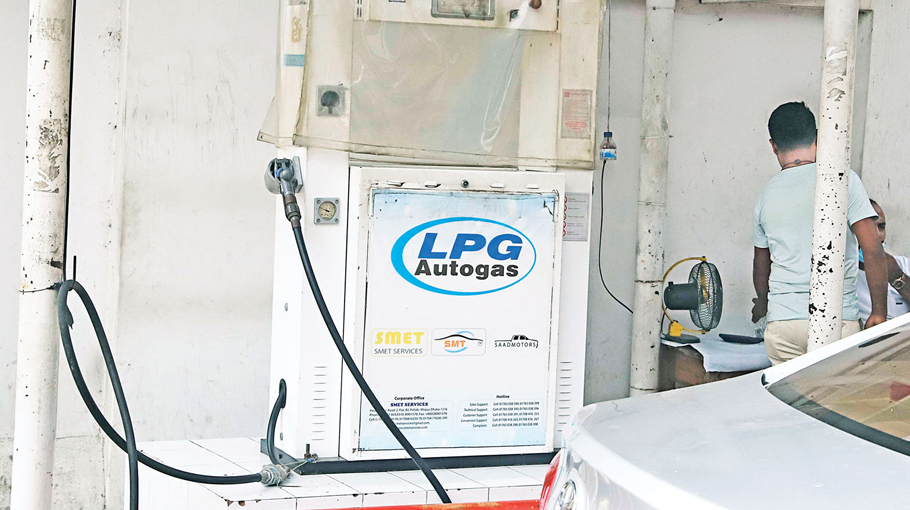Autogas expansion hits snags

Instead of the use of octane, petrol and diesel as fuel in vehicles, eco-friendly liquefied petroleum gas known as autogas is gaining worldwide popularity. But the spread of the use of this alternative fuel in the country is being hampered due to four reasons.
The four main reasons are complexity in obtaining licences, increase in energy prices, imposition of import duty on equipment for converting vehicles to LPG and imposition of VAT on autogas stocking and bottling.
Liquefied Petroleum Gas (LPG) is made from a mixture of propane and butane which has been used in the country since long as household fuel. LPG used as car fuel is called ‘autogas’. Diesel, petrol, octane, CNG and autogas are now being used as fuel for transport in the country.
Autogas is the main fuel for cars in developed countries. Many developing countries are also leaning towards it. Weight of autogas is one-third less than that of CNG. The risk of explosion is also much less as the pressure in the cylinder is less. Being transportable, it is possible to set up autogas filling stations in any part of the country. Besides, its cost is lower than that of octane, petrol and other transport fuel. Considering this, the government has adopted a policy of giving preference to autogas over CNG as the fuel for vehicles.
The use of LPG in transportation in the country started in 2005. This policy was made in 2016. However, the demand for autogas as a vehicle fuel has not increased at desired level, sources said.
When contacted, Md. Serajul Mawla, President of Bangladesh LPG Autogas Station & Conversion Workshop Owner's Association told Bangladesh Post that the gas crisis has been created across the country due to the depletion of natural gas reserves. Moreover, petrol, octane, diesel are harmful to environment. In view of this, autogas is very suitable as vehicle fuel. As a result, the use of autogas was increasing. But its use has declined by about 50 percent in the last two years.
"LPG prices are a big issue here. If prices cannot be kept under control, its uses cannot increase. Currently, 7 per cent VAT has been imposed on autogas stocks and bottling. In addition, it has to pay duty to import kits, tanks and parts required for conversion of vehicles to LPG. If the government withdraws VAT and import duty, the price of autogas will reduce,” he added.
Serajul Mawla also said there are multiple complications to obtain BERC licence for setting up autogas stations. In particular, obtaining a licence from the Department of Explosives and clearance from the Department of Environment is a complex and time consuming matter. On the other hand, it is difficult to get permission from the Department of Roads and Highways to use the land in front of the station.
“There are about 600 autogas stations across the country. Another 400 are under construction. But due to various problems, about Tk 600crore invested by businessmen in this sector is now at risk. Many are also worried about the future of this sector. We have already made several written requests to the ministry and authorities concerned but to no avail,” he added.
A driver named Mujahidul Islam said,“now there is no benefit in autogas. As a result, I no longer drive on autogas. It saves much less than petrol-octane. That is why, many people are removing autogas parts from cars. When the price goes up to Tk 50, there is no profit in autogas. Currently its price is Tk 57.91 per liter.”
A new 1500 cc car can travel up to a maximum of 10 km using by one liter petrol and octane. The cost per kilometer is taka 8.90 (The price of octane is taka 89 per liter). On the other hand, it can move 7.5 to 8 kilometer by one liter of autogas. Per kilometer cost is around taka 7.77. On the other hand, the maintenance cost of autogas- powered car is comparatively high. Conversion of a car to LPG costs taka 40,000-60,000. Considering this, none is interested in using autogas.



